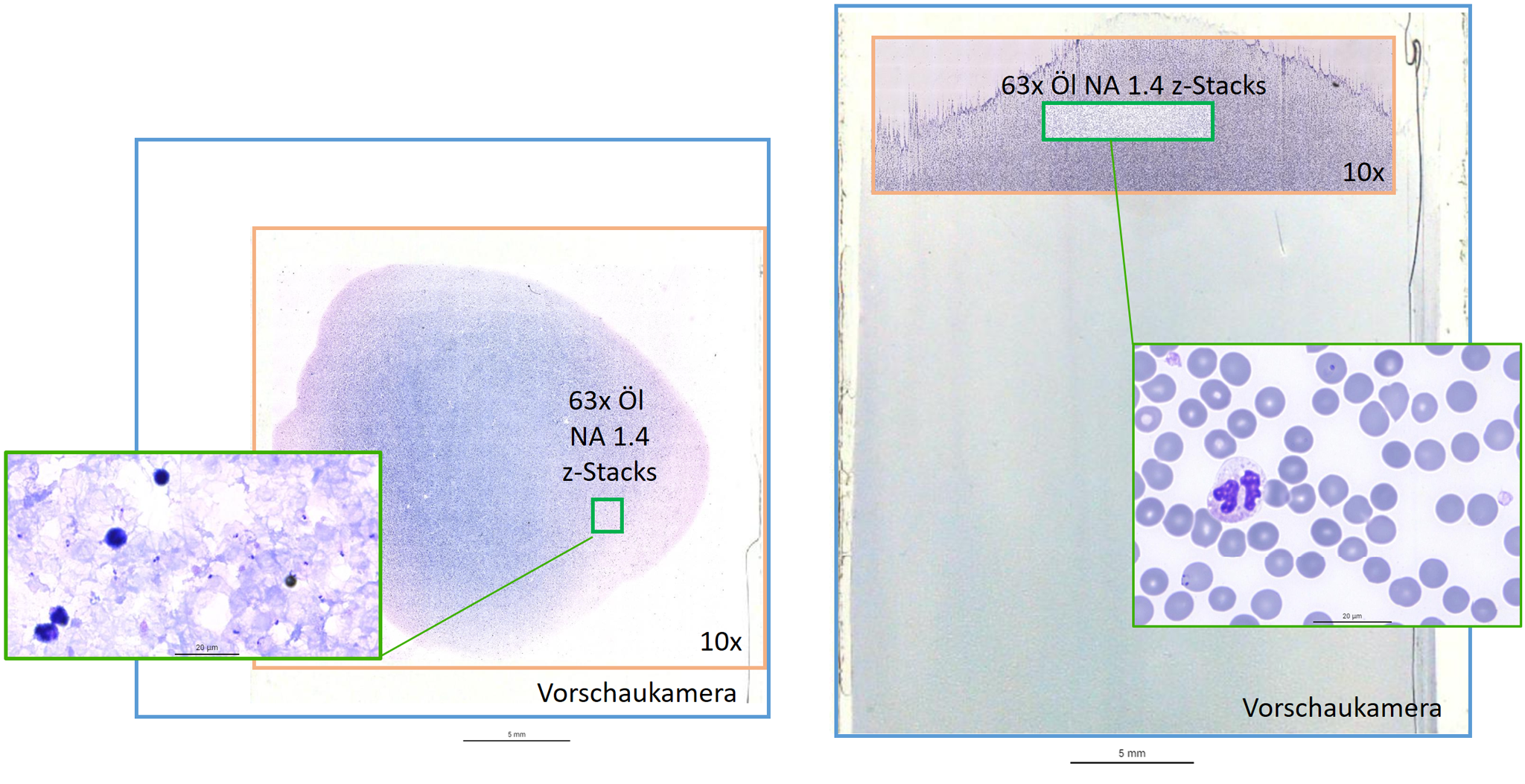Given that the diagnosis of parasitic infections requires special expertise, medical laboratories must regularly demonstrate their ability to identify such parasites. Until now, this has usually called for logistically complex proficiency tests. Using the ParasiteWeb® digital platform, these tests can now be carried out much more easily online. Dr. Michaela Benz, an expert in medical image processing whose team is involved in the platform’s development, explains the benefits of ParasiteWeb®.
ParasiteWeb®: modern, virtual proficiency tests for medical laboratories
April, 26 2023 | Interview with Dr. Michaela Benz, an expert in medical image processing
ParasiteWeb® is a collaborative project by Fraunhofer IIS, Nobit OHG, and the Bernhard Nocht Institute for Tropical Medicine (BNITM). “With ParasiteWeb®, we want to reduce the substantial effort involved in existing proficiency tests,” says Michaela Benz, project leader at Fraunhofer IIS. What makes these proficiency tests so laborious is that, for each participant, it is necessary to prepare clinical cases with one or two parasite-containing stool or blood samples on glass slides – and the number of participants generally runs into the hundreds. It is also vital, for example, to ensure that these prepared samples are all of sufficient quality and have a sufficient number of parasites. These requirements are compounded by a complex system of distribution to the laboratories participating in the proficiency test.
This situation gave rise to the idea of carrying out proficiency tests virtually. “In other words, instead of all the samples that the Bernhard Nocht Institute would otherwise have to prepare for these proficiency tests, just a single sample is now needed. We digitize the sample using state-of-the-art scanners and make it available on an online platform in collaboration with our licensing partner, Nobit OHG,” says Benz.
Finding parasites on the web – features of the platform
Whereas the number of clinical cases per proficiency test was previously limited to two due to the considerable effort involved, virtual proficiency tests mean it is now possible to offer three or more cases, each consisting of one or two samples – such as blood samples containing malaria pathogens. Participants are required to identify and classify the parasites and can seamlessly zoom into and interactively focus on the digital sample in order to examine it in the same level of detail as they could under a microscope. Another key feature of the digital samples is that they are scalable and can be used by any number of people. Moreover, the platform includes direct, automatic evaluation of results as well as an extended feedback function that allows participants to compare their results with those of the experts from the Bernhard Nocht Institute.
The proficiency test offers a high level of convenience for users, as the platform can be accessed via a standard web browser and is even suitable for use on mobile devices. Thanks to operation in English and German, it can also be used internationally. In principle, ParasiteWeb® is subject to a fee, but a demo version allows users to test and familiarize themselves with the application first. Help is also on hand in the form of a short explanatory video that is available on the platform.
“We score points for our expertise in medical image processing”
The project is funded by the Leibniz Association and brings together three strong partners: BNITM is responsible for selecting and providing samples, as well as for annotation – that is, for tagging and classifying parasites. Fraunhofer IIS then takes over and digitizes the samples using high-resolution scans to produce a whole-slide image (WSI) that allows seamless zooming and focusing. Here, the group led by Michaela Benz can leverage its special expertise in the field of medical image processing. “So far, we’ve digitized a total of over 300 samples of a wide range of parasite species,” says Benz. “When these have been exhausted, we’ll offer new ones.” Initially, the team at Fraunhofer IIS was also responsible for programming the online platform. “We’ve outsourced this work over time – and, with Nobit OHG, we’ve found a strong partner that interfaces with customers and handles further development and support. The project therefore serves as a good example of outstanding application-oriented and integrated development work.”

